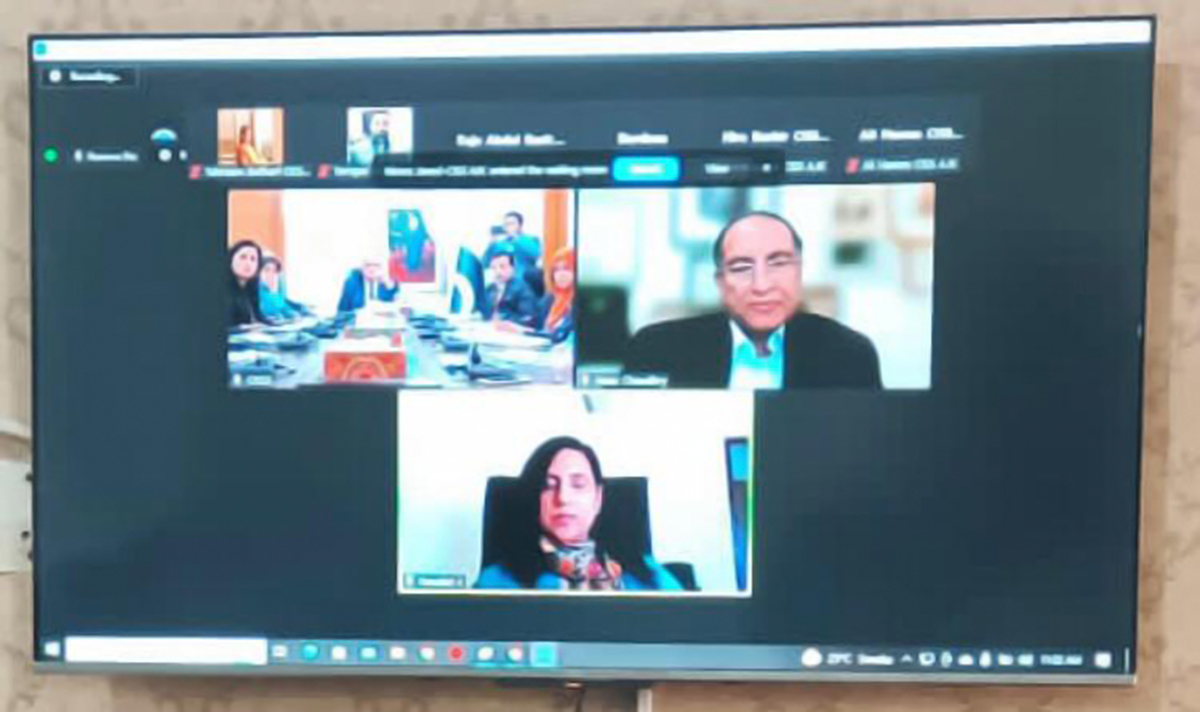To mark the 4th Anniversary of the success of Operation Swift Retort, CISSS organized a Webinar on Strategic Stability: Lessons from Balakot Crisis, on 27th February 2023. Former Foreign Secretary Ambassador (R) Aizaz Ahmad Chaudhry, Associate Professor of NUML Dr. Rizwana Abbasi, Executive Director CISSS Ambassador (R) Qazi M. Khalilullah and Director Research CISSS Air Commodore Zahid-ul-Hassan spoke on various dimensions of the crisis. Speakers recalled success of Operation Swift Retort of 27 Feb 2019, when PAF shot down two intruding Indian Air Force fighter aircraft and arrested one pilot, Wing Commander Abhinandan Varthaman. He was later handed over to India as a gesture of goodwill. They agreed that the humiliation suffered by India was the consequence of irresponsible behaviour of their leadership which had underestimated Pakistan’s capability and resolve to defend its sovereignty and territorial integrity against any external aggression, in particular India. It was highlighted during the Webinar that India had a history of committing acts of aggression and harbouring counterforce temptations against Pakistan. This was evident from “Operation Brasstacks” of 1986-1987, threat of use of force by Indian leaders against Pakistan immediately after Indian nuclear tests in May 1998, planning of attacks on Pakistan during “Operation Parakram” in 2001 – 2002, attack on Balakot on 26 February 2019, firing of nuclear capable BrahMos missile on Pakistan in March 2022, India’s “Cold Start” military doctrine and attempts by Indian submarines to sneak into Pakistani waters several times in the past few years. Ambiguity in Indian “No-First-Use” doctrine was also indicative of New Delhi’s counterforce temptations against Pakistan. Speakers underscored that no direct war had ever taken place between the US and Soviet Union during Cold War. By attacking Balakat, India, therefore, became the first and the only nuclear weapon state in the world to attack another nuclear weapon state. However, due to Pakistan’s swift and devastating blow on 27 February 2019, India had not dared to commit any act of aggression against Pakistan since the Balakot crisis. Speakers underscored that Pakistan must continue to maintain Full Spectrum Deterrence which had closed the space for war between Pakistan and India created by Indian “Cold Start” doctrine. They appreciated Pakistan’s efforts to maintain strategic stability in South Asia and stressed the need for nuclear diplomacy to reduce the risk of war in the region. However, they acknowledged that realization of this objective was not possible unless there was a change of heart and willingness in New Delhi to resolve all outstanding disputes peacefully through dialogue with Pakistan, including Kashmir dispute.


